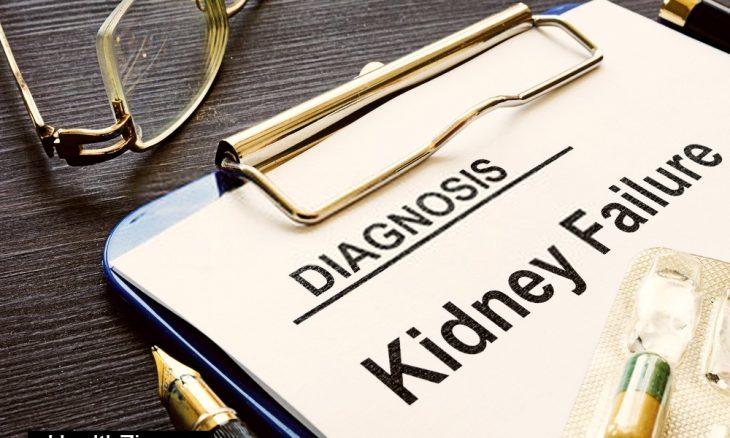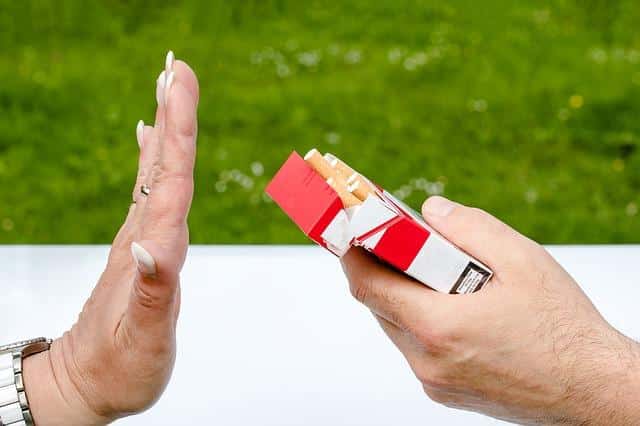
How to prevent kidney failure
You might think that the only function of the kidneys is to filter out harmful and toxic substances produced by the body. Still, in reality, they also regulate blood pressure, protect the bones and maintain the balance between minerals and liquids in the body, among others. Unfortunately, one in three people in Western countries is at risk of developing chronic kidney disease [1]. This disease manifests itself most of the time following another disorder (such as diabetes or heart disease) and progresses over several months or years. However, there are initiatives you can take to reduce the risk of developing disorders that can affect the functioning of the kidneys.
Read Also:
- How To Repair Kidney Damage?
- 10 Proven Ways To Relieve The Pain Of Kidney Stones
- Foods To Avoid With Kidney Disease
Improve your diet to prevent kidney failure
You need to take these measures to prevent kidney failure:
Eat less salt
Monitor the amount of sodium you take daily and limit it to 2,300 mg, about one teaspoon of salt. If sodium is consumed in excessive amounts, fluids build up in the body, causing shortness of breath and swelling. Try to season your meals with herbs or other spices, not salt, and stop eating foods high in sodium. These include [2] [3] :
- sauces
- salty snacks
- salty foods and cold meats
- canned and cooked meals
Limit your sugar intake
Studies have shown that sugar promotes the development of diabetes and obesity, two causes of chronic kidney disease. One tip to reduce your sugar intake is always to read food labels. Many of them contain sugar, even if they are not regarded as sweet foods. For example, breakfast cereals, white bread, and condiments contain much [4].
- Remember to limit your intake of soft drinks, as they provide a huge amount of sugar. They also contain phosphorus additives that are harmful to the kidneys and have no nutritional value [5].
- Keep in mind that sugar comes in different names. In reality, you can find 61 distinct titles for the sugar. These include high fructose corn syrup, barley malt, dextrose, maltose, rice syrup, glucose, cane juice, etc. [6]
Read Also: 14 Steps To Break Sugar Addiction
Prepare your meals
When preparing your meals, you have the option of choosing whole grains, fruits, and vegetables that have undergone little transformation process. Packaged and industrial foods contain a large amount of sodium and phosphorus, which are harmful to the kidneys. Try to consume daily five portions of fruit and vegetables [7].
In general, the size of a serving of fruit or vegetables is equivalent to the size of the palms. One meal is roughly the amount of food you can hold in your hand.
Avoid foods high in protein and saturated fat
Studies continue to be conducted to ascertain the connection between high protein diet plans and chronic kidney disorder. Although you should not avoid fat or protein, you should limit your intake of red meat, whole dairy products, and saturated fat to only a few times a week. If you have kidney disease, your kidneys have to work harder to remove waste products from the body after eating and digesting the meat [8] [9]. Among the food products rich in saturated fat, there are [10] :
- processed meats: cold meats, sausage, and salted meats,
- butter, ghee, bacon,
- cream,
- hard cheeses,
- palm oil and coconut oil.
Eat foods containing unsaturated fats
You shouldn’t altogether avoid fat. Unsaturated fats, like monounsaturated and polyunsaturated fatty acids (which include omega-3 fatty acids), can lower cholesterol naturally and therefore limit the risk of heart disease, which can lead to kidney problems. To include unsaturated fats in your diet, consume [11].
- oily fish: salmon, mackerel, sardines
- lawyers
- nuts and seeds
- sunflower, rapeseed, and olive oils
Make lifestyle changes to prevent kidney failure
You should make lifestyle changes to prevent kidney failure. Healthzigzag suggesting our readers some of them below.
Get some exercise
Overweight and obesity increase the risk of chronic renal failure. You should exercise to lose weight and lower your blood pressure, two factors that help reduce the likelihood of developing kidney disease. You should do at least two and a half hours of moderate physical activity each week [12] [13].
Studies show that obese people are twice as likely to develop chronic kidney disease. If your body mass index (BMI) is higher than 30, you are considered to be obese [14].
Walking, biking and swimming are some examples of moderate exercise.
Avoid smoking

You may feel that smoking primarily hurts the lungs. However, it may also result in cardiovascular disease. Cardiovascular problems, heart attack, and stroke are typical issues that may undermine kidney function, causing the growth of kidney disorder. Fortunately, if you stop smoking, you can reduce the occurrence of this disorder [15].
If you are a heavy smoker, talk to your doctor about quitting therapies. Your doctor may recommend nicotine patches or psychotherapy sessions [16].
Limit your alcohol intake
When you drink alcohol, your blood pressure and cholesterol go up, which promotes hypertension and can also cause kidney failure. You don’t have to stop drinking alcohol altogether, but you should limit your consumption to 2 drinks per day (for men under the age of 65) or one drink per day (for women [17] [18] ).
One glass is equivalent to 350 ml of beer, 150 ml of wine or 45 ml of distilled spirits (liqueurs).
Get regular checkups
Since it is difficult to detect kidney disease until it is at an advanced stage, you should see a doctor and have regular checkups. If
you’re in good health, aren’t predisposed to the disorder, aren’t obese with a BMI less than 30, create a consultation every two or three decades. You are in good health and are between 30 and 40 years old, go to the doctor every two years. If you are in good health, and you are 50 years old, you can have your health check-up every year [19].
If you have been diagnosed with another chronic condition, such as high blood pressure, heart disease or diabetes, it is essential to see your doctor regularly to manage the situation and prevent chronic kidney disease.
Take pain relievers correctly
Nonsteroidal anti-inflammatory drugs and pain relievers can cause kidney damage if you take high doses for an extended period. Taking a high dose for a short time may temporarily affect kidney function. If you are taking aspirin, paracetamol, ibuprofen, ketoprofen or naproxen sodium, carefully follow the manufacturer’s directions for dosage [20] [21].
Ibuprofen, aspirin, and naproxen are in the same pharmacological class, so taking a combination of these drugs can cause kidney problems.
Paracetamol is metabolized by the liver and not by the kidneys, which means that you should choose this medication if you have kidney problems (as long as you don’t have liver problems).
Always tell your doctor about the medicines you are taking, as pain relievers (even over the counter pain relievers) may interfere with other drug products.
Recognize kidney failure and seek treatment
Watch for symptoms
You may not detect them immediately, as kidney failure takes time to fully manifest. Signs and symptoms to watch for include [22] :
- an increase or decrease in the frequency of urination,
- tiredness,
- nausea,
- itching and dry skin,
- blood in the urine or dark, frothy urine,
- muscle cramps or fasciculations,
- swelling around the eyes, feet or ankles
- confusional states,
- difficulty breathing, concentrating or sleeping.
Assess the risk factors
Although preventing kidney disease is an essential aspect for anyone, it is even more so if you have any pathological predisposition. Risk factors increase if you have a history of diabetes, high blood pressure or heart disease. For example, people of African, Hispanic, and Native American descent are at higher risk for kidney disease, as are people over the age of 60 [23].
Also, if you have a family history of kidney disease, you are at increased risk because of the genetic factor.
Get medical treatment
Since many of the symptoms of chronic kidney disease resemble the symptoms of other conditions, it is essential to get examined by a doctor if you have any of them. The doctor may order blood and urine tests to check your kidney function. From the test results, he can then diagnose the disease or find out if you have other disorders causing similar symptoms.
Inform him of your medical history, if you are taking medication and if you have any concerns about kidney health.
Follow the prescribed treatment to the letter
Once the diagnosis is confirmed, you will need to treat the underlying disease. For example, if a bacterial infection is causing your symptoms, you should take antibiotics. However, since kidney failure is a chronic disease, the doctor can only treat the resulting complications.
If kidney disease is at a severe stage, you may need to consider dialysis or even kidney transplantation [24].
Your doctor may prescribe medication to treat the complications. In particular, you may be able to take medication to manage high blood pressure, lower cholesterol, relieve swelling, treat anemia, and protect your bones. Published By Healthzigzag.com
Read Also: How to clean the kidneys with parsley?




